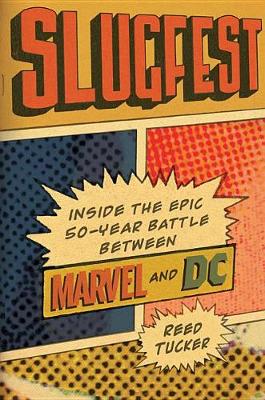Reviewed by Quirky Cat on
I got into the comics world later than most. Being not yet thirty, I’ve missed quite a lot of history and anecdotes about the battles between Marvel and DC (though I’ve heard a lot of talk about it). Being able to read the entire history between the two companies, from their beginnings to now was fantastic. Despite the fact heavy nature of the book, I found myself devouring this book in just a few sittings.
I’ve always wondered about why the companies had such different approaches to the same business, why they had such a different feel, and why the fans could never seem to agree (depending on whom you ask, you’re only allowed to like either Marvel or DC). Where did the animosity come from? I think we can all agree that it goes far beyond normal competition between companies. This is something different, something much more expansive. Reed Tucker’s novel provided many answers for my questions, and then some.
Along with some colorful anecdotes, Tucker tells us the story of how Marvel and DC began butting heads, and how time only made matters worse. Along with covering the battles between the two companies, he also tells us of their individual struggles, and their fights against other threats. On the whole I think Tucker did a pretty decent job of trying to stay impartial (though I have a theory about which “side” he roots for), attempting to stick to the facts and statements of others more than anything.
Some of the facts and quotes quite literally made me laugh out loud, a pleasant surprise to say the least. So if you’re looking at this book and thinking it’ll be fact heavy to the point of being dull, please let me assure you that isn’t the case. I tried highlighting (on my kindle, don’t worry) all the points that made me smile or laugh, but by the end I gave up trying to keep track of it.
Upon finishing Slugfest I actually found myself a little sad – I wanted to be able to keep reading it. Unfortunately that was not to be – since the novel had caught up with the time, and sadly Tucker can’t see into the future. Perhaps someday Tucker will write a sequel to tell us more about what happens from now until then? I find myself exceptionally curious about his opinion on the state of affairs going forward.
For more reviews, check out Quirky Cat's Fat Stacks
Reading updates
- Started reading
- 28 September, 2017: Finished reading
- 28 September, 2017: Reviewed
